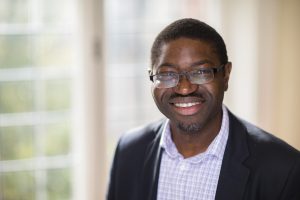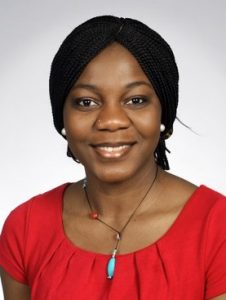Immunities of Heads of States & the International Criminal Court
Presented by: Professor Dapo Akande, Professor of Public International Law, University of Oxford
Monday October 28th, 12:30pm – 2:00pm
Osgoode Hall Law School, Room 1004
This talk will consider the recent decision by the Appeals Chamber of the International Criminal Court, in the case against former Sudanese President Omar Al Bashir, that heads of states and other senior state officials are not immune, under customary international law, from the jurisdiction of international tribunals. It will be argued that the finding is not only wrong as a matter of law but failed to properly understand the legal basis on which the Court exercises its criminal jurisdiction. There was a clearer and more persuasive basis on which to hold that the former President Bashir was not immune from arrest and surrender to the Court. The talk will explore the implications of the ICC’s ruling for the Court as an international institution.

Dapo Akande is a Fellow at Exeter College and co-director of the Oxford Institute for Ethics, Law and Armed Conflict (ELAC). Before moving to the Blavatnik School, he was Professor of Public International Law at Oxford Law Faculty and was, from 2012 to 2017, co-director of the Oxford Martin Programme on Human Rights for Future Generations. He has held visiting professorships at Yale Law School, the University of Miami School of Law and the Catolica Global Law School, Lisbon. He was the 2015 Sir Ninian Stephen Visiting Scholar at the University of Melbourne Law School’s Asia-Pacific Centre for Military Law. Before taking up his position in Oxford in 2004, he held positions at the University of Nottingham and the University of Durham, and from 1994 to 1998, he taught part-time at the London School of Economics and at Christ’s and Wolfson Colleges, Cambridge
On the need for Intellectual Property Rights in ECOWAS
Presented by: Juliet Ogbodo, School of Law, University of Eastern Finland
Thursday October 31st, 3:30pm – 5:00pm
Osgoode Hall Law School, Room 2028
In the present digital economy era, the nexus between trade and intellectual property rights (IPR) is undeniably stronger. IPR have become an imperative part of bilateral and multilateral trade negotiations. Thus, the new generation of trade agreements all make provisions for the protection of IPR. In the global south countries, however, specifically, in West African countries, the struggle to negotiate implementable and beneficial IPR terms in trade negotiations is apparent. The contributory factors to this struggle, besides the lack of capacity, include the failed legal transplantation of IP laws into West Africa during the colonisation period. This research thus examines the limiting factors that exist for West African countries in negotiating IP terms contained in trade agreements. It questions the existing IP legal frameworks in West Africa and argues that the de-colonisation of IP laws in these countries, followed by a tailored IP framework, regulated on the regional level in ECOWAS, has the potential of equipping West African countries to negotiate practical IP terms in future trade negotiations.

Juliet Ogbodo is an early stage researcher at the School of Law, University of Eastern Finland. Her doctoral research focuses on the nexus between intellectual property rights and trade, specifically in the West African region. Juliet holds a master’s degree in International Economic Law from the University of Eastern Finland. Her research interests include regionalism approaches in West Africa, legal transplants, EU law, and the ECOWAS Free Movement of Goods provisions.